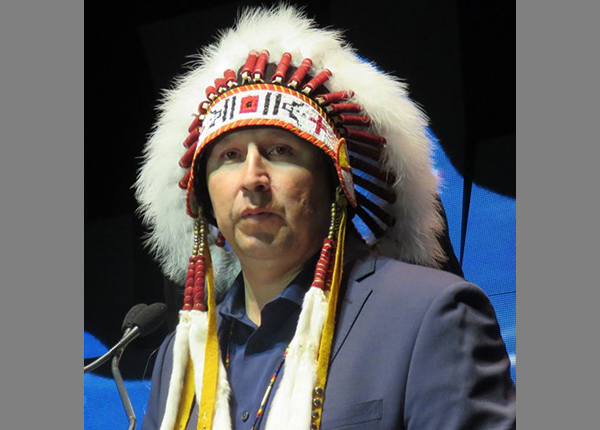By Jake Cardinal, Local Journalism Initiative Reporter
(ANNews) – Nesika Services, an Indigenous not-for-profit organization that went public Monday, is seeking a stake in ownership of the Trans Mountain Pipeline (TMX).
The self-described grassroots organization was formed to support Indigenous communities by maximizing economic opportunity through the ownership of the TMX, as well as to enable communities to make informed decisions on how Indigenous ownership can govern the environmental and economic impacts of the pipeline.
Community leaders and founding directors of Nesika Services include Chief Tony Alexis of Alexis Nakota Sioux Nation and Chief Alice Mckay of Matsqui First Nation, Councillor David Walkem of Cook’s Ferry Indian Band, and Mark Peters from Peters First Nation.
Chief Alice McKay said in a statement, “Part of the reconciliation process is to close the socioeconomic gap between Indigenous and non-Indigenous peoples. By determining the outcome of TMX, we can deliver a project through our ways of knowing and doing and a return to economic independence for our communities.”
“We are a not-for-profit without predetermined financial or operating partners. We seek only an outcome that empowers our own communities to make their own informed decisions.”
The organization has said that it is not backed by industry or affiliated with financial institutions or operating parties — it serves from a consensus-based model that values equally the voices of all communities.
Chief Tony Alexis, Chair of Nesika Services, said, “As TMX moves forward, we are preparing our communities to be the beneficiaries of the largest infrastructure asset of this generation. This is the first time in history that Indigenous People would have an opportunity of this magnitude.”
“We will seek an outcome that equally values the environment and governance alongside economic benefits for our people.”
Nesika Services’ approach is to bring as many of the 129 communities — who were federally identified as impacted by the pipeline — together as possible to explore both equity and revenue sharing opportunities in the TMX with no up-front capital requirements from participating groups.
In an interview with CBC, Chief Alexis said, “Ultimately what we’re trying to do right now is to organize the communities. Once Canada has decided they’re willing to sell this pipeline, then at that time we’ll be negotiating to purchase.”
He also said that of the 129 affected communities, 14 Nations along the pipeline route have signed on.
While there are two other Indigenous entities trying to purchase the pipeline, Project Reconciliation and Chinook pathways, Chief Alexis believes that the not-for-profit model sets Nesika apart.
“These groups, these other groups, they are profit-oriented, which is a major conflict for Indigenous communities,” Alexis said.
“For me, as a community leader, when I look at Nesika, it provides the best opportunity for us to build our wealth and grow our communities. Resources are needed within the communities and Nesika provides that kind of opportunity for us.”
Chief Alexis declined to elaborate on where the money for the purchase would come from, but said that it would be determined when the government sets the terms of sale.
He believes that negotiations with “interested parties” would start “within a month or two.”



Be the first to comment on "Indigenous non-profit seeking ownership of TMX pipeline"